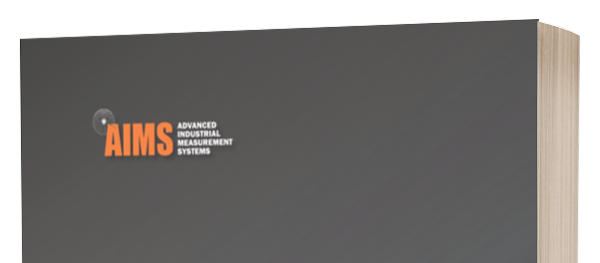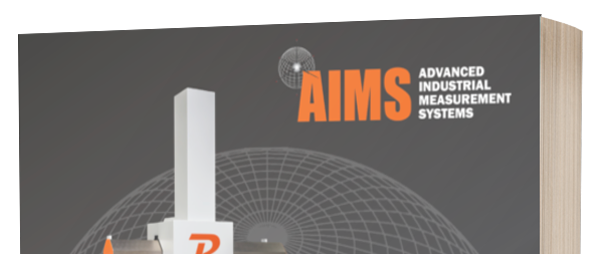You'll start to see a surge in consumers purchasing electric vehicles (EVs) and hybrids in the near future. So how does this impact us in the industrial manufacturing space? Well, the EV and hybrid market space will need our coordinate measuring machines (CMMs) and applications to meet demand for quality automobiles. Read below for more insights on CMMs in the electric vehicle and hybrid market space.
Increased demand for charging stations means increased demand for CMMs
Of course, the question on everyone’s mind is, “are there enough charging stations to make an EV purchase practical?” Tesla, ChargePoint, EVgo, and Electrify America plan to set up more charging stations across the U.S. and Canada in the near future:
- Tesla is growing from 762 to 1,130 charging stations. According to a 2020 Consumer Reports update, Tesla, which accounts for about 80 percent of the U.S. EV market, has an extensive Supercharger network with 762 stations in 47 states. Growth projections point to 1,130 stations in every state in the near future. While most stations have multiple chargers, Tesla charging stations work only for Teslas.
- ChargePoint is growing from 30,000 to 34,000 charging stations. According to Reuters, ChargePoint plans to install Level 2 and DC fast chargers at more than 4,000 U.S. locations by 2030 to expand EV charging along highways and in rural communities.
- EVgo has more than 800 charging stations and growing. According to their website, EVgo opened more than 75 new fast EV charging stations just last year in 2020, and are committed to this mission in the future with no current growth numbers listed.
- Electrify America is growing from 2,200 to 3,500 chargers . By the end of 2021, Electrify America plans to install or have under development approximately 800 total charging stations with about 3,500 DC fast chargers.
Applications for CMMs in electric vehicles and hybrid market to flourish
A surge in electric vehicles means a surge in manufacturing their parts (we know you're familiar with this concept!) Applications for CMMs in the electric vehicle and hybrid market space include:
- Aluminum frames
- Stampings
- Connector terminal lodging (and roughness)
- Different size jacks and panels
Do you offer any of the above applications? Could they be applied to the electric vehicle and hybrid market space? Ask these questions now to see how you can grow in the future.
eAxles are the new single housing electric vehicle motor designs
Multi-sensor CMMs are also being sourced for quality inspection of eDrive housings. A number of electric vehicle designs are integrating the electric motor, power electronics and drivetrain components into a single housing. Also known as eAxles, this design reduces the weight and axial installation space needed to accommodate battery stacks—or in a hybrid EV, a second engine and transmission.
Dimensional tolerances are tighter and certain features harder to access during EV quality assurance processes
These integrated system designs mean smaller and more complex housings that are being developed for electric vehicles, characterized by particular size, form and position specifications as well as lower wall thickness. As a result, dimensional tolerances are tighter and certain features harder to access during quality assurance processes.
Housing inspections and applications for EVs require a flexible measurement solution
Typical housing inspections that on standard vehicles require standard geometries and profile feature measurement, with key features including sealing surfaces, flanges, boreholes, cooling holes or coolant channels, wall thickness, bearing of the shaft and bearing arrangements. However, those would not be measured on electronic vehicles, nor would a typical housing inspection be performed on EVs. Electric vehicle applications require a flexible measurement solution that can achieve the necessary accuracy without compromising on cycle times.
Five-axis CMMs are now standard for ICEs components
While we don’t see internal combustion engines going away anytime soon, the burgeoning market for electric vehicles and hybrids means that CMM technology must also evolve to perform new measuring tasks. Five-axis machines are being asked to provide the following capabilities for electric vehicles and hybrids:
- Multi-sensor, rapid scanning of machined casings
- Chassis components (suspension arms)
- Crash structures
- Motor and battery mountings
- Cover part size measurement and surface properties for a lithium ion battery
- Battery box size and surface properties
- Molded product size and shape measurements for a hydrogen-oxygen fuel cell separator
Real life 5-axis LM and CMM for electric vehicles and hybrids
With our 5-axis Linear Motor (LM) and Summit 10.10.10 CMMs we can provide noncontact measurement if the part is so small a probe can’t access its features or if a material exhibits deflection due to thinness or is very soft. Infinite positioning and 5-axis motion of our CMMs offer easy access to difficult features while flexible tip sensing aids accuracy and flexibility. The combination of REVO 2 with the Summit gives a manufacturer new ways of scanning, including:
- Touch points
- Circular or helical scans while capturing data on contoured surfaces and edges
- Multi-sensor surface finish
- Video probing
- Measuring speeds up to 500mm/second
- Data collection rates of up to 4,000 points per second for increased throughput
- Rapid calibration for all positions, expanding uptime
- Infinite positioning and 5-axis motion offer easy access to difficult features while flexible tip sensing aids accuracy and flexibility.
Thinking of expanding your reach into the EV or hybrid supply chain? We’d love to talk with you about your inspection needs.

